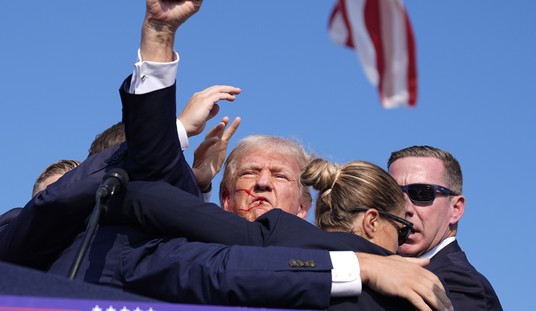A recent poll by the Cato Institute revealed that around one-third of Gen Zers are actually in favor of in-home government surveillance. Yes, you read the right. The poll asked 2,000 people, “Would you favor or oppose the government installing surveillance cameras in every household to reduce domestic violence, abuse, and other illegal activity?” The majority of respondents (75%) said no. 10% had no opinion, while 14% were in favor of the idea. Those people tended to fall in the under-30 age range, lean left, or are members of a minority group. Not surprisingly, the numbers were roughly the same when it came to the concept of adopting central bank digital currencies. Three out of 10 Americans under 30 liked the idea of in-home surveillance but the rate of approval dropped as the ages increased. Twenty percent of people aged 30 to 44 approved. Only 6% of people aged 45 and over were in favor of it.
The Institute stressed that it was important to note the overwhelming majority of Americans were opposed to the idea of letting Big Brother eyeball our every move. At the same time, it emphasized “the higher acceptance among younger generations to trade freedom and privacy for some added security and protection.”
Why this trend? In the publication of its findings, the Institute theorized that the attitude might be attributed to the idea that Gen Z favors safety more than freedom. Gen Z may be more risk-averse than previous generations. According to Cato, another factor may be that Gen Z does not remember the Cold War or the Berlin Wall, so the idea of a surveillance state is not as frightening to them as it was to their grandparents or even parents.
Beyond that, it is important to keep in mind that the question was, “Would you favor or oppose the government installing surveillance cameras in every household to reduce domestic violence, abuse, and other illegal activity?” This sounds like a perfectly rational idea. After all, who doesn’t want to stop domestic violence, abuse, or illegal activity? However, abuse can take many forms other than physical. And abusers are often fanatical about covering their tracks and keeping their behavior under wraps. Criminals, batterers, and abusers of all stripes will find ways to circumvent the system. And let us remember that throughout history, bad ideas were usually presented as good ideas, at least in the beginning. Also, Gen Z has been raised to believe that the media and a leftist government are their friends and have their best interests at heart. They find it hard to believe that such entities would ever move against them. They have been taught that the only people who would ever impose a police state are conservatives.
Finally, Gen Z has come of age in a world of increasing surveillance. Cameras are everywhere, and many of these people don’t care if they are being tracked online. They have no idea that once upon a time, one could go through airport security without removing one’s shoes and submitting to a body scan and a pat-down. Submission — at least to people whose propaganda they favor — is a good thing. As is the convenience that comes with all of this wondrous technology. It is an easy price to pay. Until it isn’t. But by then it’s too late.
Related: FBI ‘Afraid’ Their Whistleblower Will Be Iced
The Cato summary ends with this:
If these trends continue, the United States may confront a very different privacy landscape in the future. It is possible that at some point, the American public will be open to extreme government overreach in a world that feels scarier and more dangerous than before, whether or not it is. Thus, it is important to impart the learnings of the past (and present) about what can happen when government amasses too much power. Without explicitly telling younger generations about the risks and dangers of government surveillance they will forget these lessons and may find themselves repeating devastating mistakes of the past.
Orwell’s 1984 has a number of alarming moments. Many remember the climactic scene in Room 101 in which O’Brien tortures Winston Smith to the breaking point. Winston is shattered and the police state triumphs over yet another individual. But for me, the most shocking moment occurs much earlier in the book. It is in a scene in which Winston is roused from sleep for the state-mandated exercise routine via the two-way video screen in his apartment. During the workout, Smith’s mind wanders and he is physically unable to keep up. This does not go unnoticed by the leader.
‘Smith!’ screamed the shrewish voice from the telescreen. ‘6079 Smith W.! Yes, you! Bend lower, please! You can do better than that. You’re not trying. Lower, please! That’s better, comrade. Now stand at ease, the whole squad, and watch me.’
A sudden hot sweat had broken out all over Winston’s body. His face remained completely inscrutable. Never show dismay! Never show resentment! A single flicker of the eyes could give you away. He stood watching while the instructress raised her arms above her head and — one could not say gracefully, but with remarkable neatness and efficiency — bent over and tucked the first joint of her fingers under her toes.
‘There, comrades! That’s how I want to see you doing it. Watch me again. I’m thirty-nine and I’ve had four children. Now look.’ She bent over again. ‘You see my knees aren’t bent. You can all do it if you want to,’ she added as she straightened herself up. ‘Anyone under forty-five is perfectly capable of touching his toes. We don’t all have the privilege of fighting in the front line, but at least we can all keep fit. Remember our boys on the Malabar front! And the sailors in the Floating Fortresses! Just think what they have to put up with. Now try again. That’s better, comrade, that’s much better,’ she added encouragingly as Winston, with a violent lunge, succeeded in touching his toes with knees unbent, for the first time in several years.
I read 1984, oddly enough, in 1984 while in high school. Back then, the idea that the government could look into your home and your private life at any time for any reason was chilling. But it also seemed laughably impossible. That of course was in the “before times,” prior to the advent of Siri, Alexa, and phones that tracked your movements. That was before smart TVs with cameras and refrigerators that know their contents better than you do. And unlike China, which has perfected the practice of surveillance without the permission of the populace, we in the West gladly accepted it in the name of convenience. Of course, the companies that sold us these wonderful products were not exactly upfront about their intent. But many Americans accept it, much like they accept the various trackers that harvest their information for sale on the web. Convenience may be cheap after you get over the initial sticker price. But it isn’t free.










Join the conversation as a VIP Member